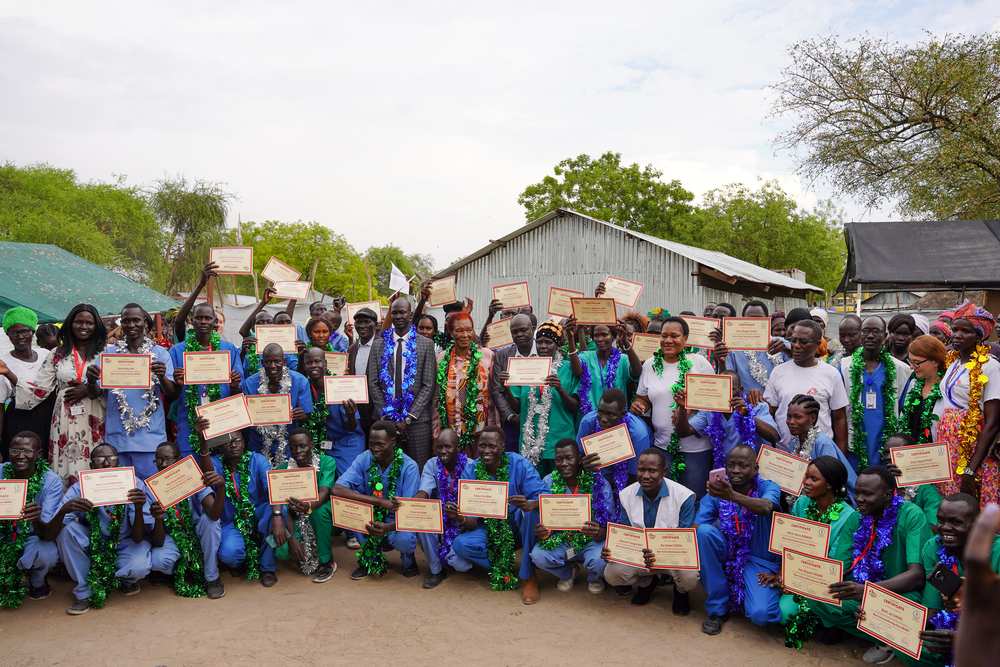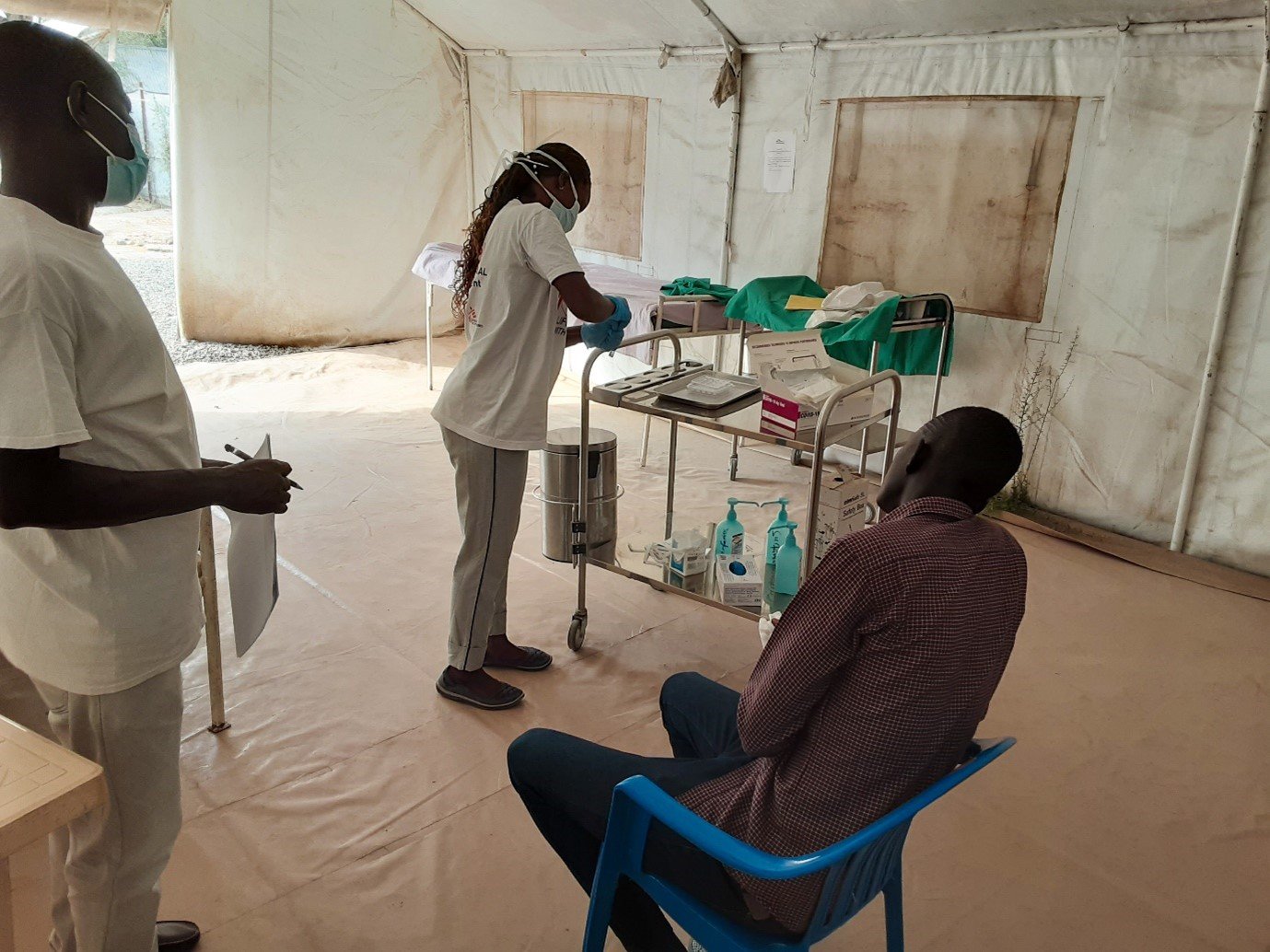A midwife participant at MSF Academy: "It improves the staff’s work and patient care becomes simpler."

- Adrilli Anna Robert is a midwife in the maternity ward of a hospital in Lankien, South Sudan.
- She has been working for MSF since 2021, and she has participated in the Nursing and Midwifery initiative of the MSF Academy for Healthcare, which aims to strengthen the skills and competencies of the staff providing nursing and midwifery care in MSF-supported hospitals.
Anna decided she wanted to be a nurse when she was a kid. “My auntie was a nurse, and I saw her getting dressed every morning going to work. That made me have the courage of becoming like her...”
She is only the second person to have healthcare training in her village. “They were always bringing help to us from other places, but they were facing challenges with the translation, so that also encouraged me to become a nurse, to help my people.”
She got a governmental scholarship to go to Maridi School of Nursing and Midwifery, where she ended up taking midwifery courses because there were no places left to study nursing. Then she worked with different health centers and NGOs before getting a job with MSF.
With the MSF Academy, Anna has been able to improve her knowledge and skills going through the Basic Clinical Nursing Care learning programme. “I really enjoyed this training, the unit that was the most interesting for me was the one on nutrition and therapeutic feeding,” she says. “Now I’m able to identify the nutritional status of the child.”

She says she’s also happy to be able to use her skills to help other women, as many healthcare professionals in South Sudan are men.
“Most of our female patients don’t feel like being treated by male staff, so I really feel happy to help them. But we also keep educating them, telling them that our male colleagues are doing the same work as we are, and will not do anything bad to harm them or their babies.”
After she’d completed the course, Anna did further training with the MSF Academy to become a learning companion, providing individual bedside mentoring for other learners. This “cascade” system means that knowledge is passed on by the clinical mentors who train the learning companions, who in turn become tutors for their peers.
Anna acknowledges that some of the skills and practices taught in the programme may never before have been explained to the participants, or participants may have forgotten them or not be performing them in the best way possible.
“The nurse aides here haven’t been to school, so they may be lacking some knowledge,” she says.
“I wanted to become a learning companion to transfer the little knowledge that I have from college to my colleagues. I am able to translate everything for them and they understand it better from me than from the class.”

“There are aspects that we should not take for granted, like personal hygiene or infection prevention precautions, so must really emphasize these strictly because we don’t want patients to get a cross infection.”
As well as supporting her colleagues to improve patient care, Anna says that becoming a learning companion has helped her to develop “skills to manage people and be a leader.”
This has been helpful when navigating the challenges of the role: for example, when tutoring colleagues with more years of experience. “Sometimes you have to insist for the person to repeat the practice when you saw that something went wrong,” she says.
At Anna’s hospital, line managers and supervisors have been supportive in helping Academy participants balance their workload and training hours. “You can go to your classes, and people will cover for you,” Anna explains.
But she has seen the difficulties that female colleagues have experienced, especially if they had children. “One of my mentees was breastfeeding, and she was working in the morning hours, and in her free time she had to do some assignments, so she felt she couldn’t spend enough time with her baby.”
Even with all the personal challenges of balancing work, learning, and family life, Anna has seen that the colleagues have been enthusiastic about the training. “The little time they have, they squeeze it and do something out of it, because they are interested in the work and they are showing up for the mentorships,” she says.
Having experienced its impact in both herself and her workplace, Anna is enthusiastic too:
“I would recommend MSF to continue with the Academy. It has really improved the staff’s work, they really do the right things in the ward now and patient care becomes a simpler thing,” she says.
The MSF Academy
The MSF Academy for Healthcare focuses on strengthening the medical and paramedical skills and competencies of frontline healthcare workers through work-based learning and clinical mentoring, based on adapted comprehensive curriculums and innovative tools. The goal is to impact the quality of healthcare in the long-term.
The MSF Academy Nursing and Midwifery Care programme is currently being implemented in five countries and has more than 700 active learners. The programme is delivered in the work environment, while participants continue their nursing and midwifery duties simultaneously.
Visit: www.msf.org./academy





Leave a Comment